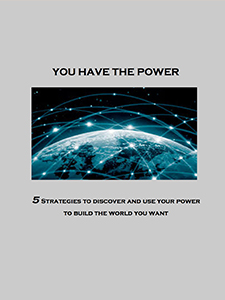Have you ever thought about what is the one thing we do most of the time, every day of our lives? We have conversations, either with ourselves or with others.
Let’s take a look at your workplace: Do you use the phone? Do you go to meetings? Do you delegate work? Do you negotiate with clients, allies, bosses and collaborators? Do you write and read e-mails and reports? Do you brainstorm with others? All these activities are different kinds of conversations in which you and others want to produce certain outcomes.
Conversations are not only descriptions of what people can see around them. Conversations produce outcomes in terms of business results and peoples’ emotions. If you are negotiating a sale with a potential client and you listen to him saying, “Yes, we will go for it”, you will probably feel an emotion of joy. After the sale you and others will hold many other conversations inside your company in order to produce and deliver what you sold. The final outcome of your sales conversation will be expressed in the money that your company will receive from the customer and his expression of satisfaction with the quality of the content and the opportunity of the delivery.
Keep in mind that one single successful sales conversation generates many other types of conversation. What if there were misunderstandings in one or more of those conversations? In other words, what if there were bad conversations held and not everyone understood the same in terms of what had to be done, who was responsible for doing what, and when? Most probably this miscommunication will have a negative effect on production and delivery time, and also on useless tracking time, complaints and mutual accusations. Moreover, the company’s reputation might be damaged and the overall climate might be harmed.
Having the right conversation with the right people at the right time is a key element of productivity and time management. Just as you need to learn the physical principles and the dynamics of electricity in order to work as an electric engineer, you need to learn how to converse in order to be effective and efficient, whatever the position you hold in the organization.
In a conversation there is always someone who speaks and someone who listens. Many people consider that speaking is more important than listening. Nevertheless, here comes the secret: the most important thing we do in a conversation is listening and not speaking. Actually, what do we speak for? We speak in order to be listened to. We would not speak if we did not expect someone to listen.
Listening validates speaking. That is why it has become one of the key skills of leadership. A leader who is a keen listener will be able to anticipate breakdowns, to sense emotions, to enhance talents and to help align the purposes of the company with the expectations of its employees, optimizing the use of time and increasing its productivity, while creating an environment of well-being in the workplace.
A very important difference between listening and speaking is that listening happens. You do not decide to do it. Nevertheless there are ways in which you can become a good and active listener:
1. Do not take for granted that the person to whom you are speaking will effectively listen to what you are saying. What is said will be heard by her ears, but the listening includes perceptions and interpretations which can be different between the speaker and the listener.
2. When you give an instruction always check what the person listened to.
3. Pay full attention while listening.
4. When what you listen is not clear for you, ask until there is no doubt for you, especially if you are going to make a promise regarding what you listened.
In contrast to listening, you decide what you will say. There are six different speech actions, involving different responsibilities for each of them.
Conversations matter. Human language is unique and allows us to create, to learn and to innovate.
Follow Me
Testimonials
Sally surprises me in every session with her wide perspective on how to deal with problems, turning them into opportunities. With her support, I have been able to strengthen my own abilities and fully display them in order to fulfill my professional purposes.
— Lorena Banchero, President of “IMPRONTA GEOFÍSICA”, Consultants in Mining Exploration, Santiago, January 2014I thank Sally from the bottom of my heart for the light that she gave me. Her eyes always showed her commitment to my growth. I thank her for creating a transformational space which is sweet and gracious, and, at the same time, ambitious.
— Andrea Monaco, Development Manager MEGATONE, El Chaco, Argentina, December 2012I can now say that I am a 2.0 version of myself. I wish I could find a more powerful expression than THANK YOU to express my deep gratitude for Sally and her coaching.
— Paula Sucre, Doctor in Economic Analysis, Universidad de Valencia, Spain, Santiago, March 2012Thanks to Sally’s devotion, her coaching skills and her empathy, I was able to significantly improve my own productivity and that of my collaborators.
— Arnoldo Valdés, Business and Development Vicepresident, Electroandina Inc. Santiago, November 2008I went to Sally’s course expecting to acquire distinctions for my coaching and consulting work. I did and I also found a huge space for personal growth. My coaching sessions with Sally were incredible, and her treatment of management and organizations is first- class. If you want to go to a higher place in life and work, don’t miss her course!
— Oscar Cáceres, President of Oscar Cáceres & Associates, Santiago, April 2012Being guided by Sally through the paths and processes of coaching, experiencing her love, devotion, wisdom and patience, is something I will never forget. The learning spaces that she created will leave a strong trail in my coaching education. Thank you Sally, Master in the Art of Leadership!
— Laura de Paul, Coach, Córdoba, Argentina, March 2012Sally’s vast experience and her personal devotion to my learning during 2006-7 have borne fruits which last until today, allowing me to continually improve my capacity and skills to hold effective personal and professional conversations.
— Mabel Farías, B.A. in Art, Actress, Workshops facilitator, Santiago, January 2014The coaching sessions with Sally have allowed me to broaden my perspective and enlarge my possibilities of action in the working environment. I am now much better at handling limiting emotions and also at observing and transforming certain deeply rooted beliefs that hindered my development.
— Verónica Ortega, Psychologist and Coach, Santiago, February 2014The Novel Entrepreneur
Download E-book
Member of
Official Ambassador WBECS 2017









Comments are closed